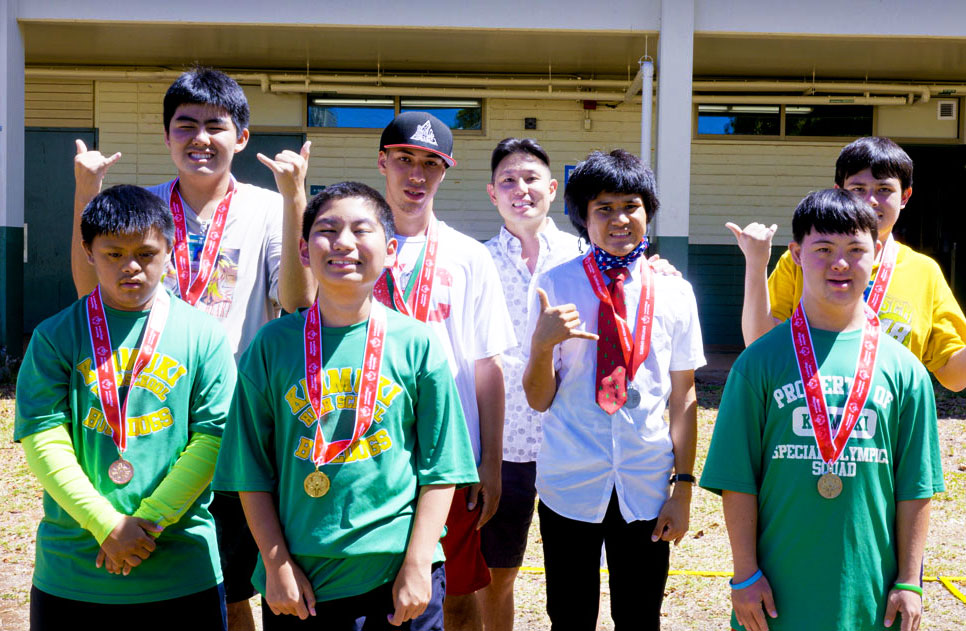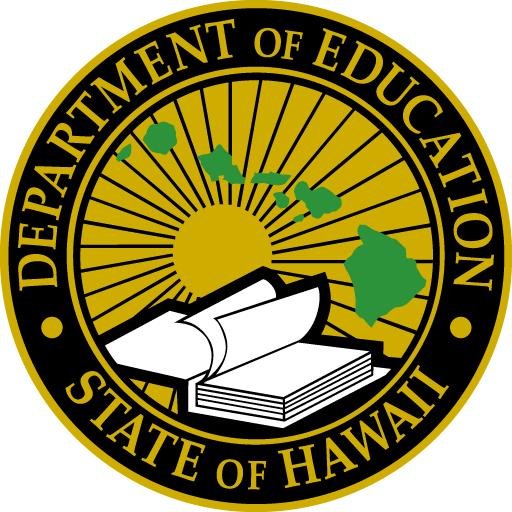The Hawaiʻi State Department of 教育 (HIDOE) provides services to children ages 3 through 21, residing in Hawaiʻi, who are eligible for 特殊教育 及相关服务。 Special education is specially designed instruction, related services, and other supplementary aids to meet your child’s unique needs—at no cost to parent(s).
概述
Special education refers to a range of services provided your child with disabilities to improve their educational outcomes. It is specially designed instruction to meet the unique needs of your child with disabilities. Special education may include, but is not limited to, academic services, speech-language services, psychological services, physical and occupational therapy, counseling services, and parent education. In addition, 特殊教育 services are provided at no cost to parent(s). Find out if 特殊教育 Is it for your child? (PDF).
Special education services are made available to any student — ages 3 through 21 — who demonstrates a need for specially designed instruction after an eligibility determination. An evaluation will determine the nature and extent of the student’s needs. Evaluations are separate assessments that may include: academic performance, communication skills, general intelligence, health, vision, hearing, social and emotional status, and motor abilities. If your child is eligible for 特殊教育, services are provided through an Individualized 教育 Program (IEP).
The federal Individuals with Disabilities 教育 Improvement Act of 2004 (IDEA) and state regulations require the HIDOE to provide a free appropriate public education (FAPE), which includes a continuum of services for your child who is eligible for 特殊教育 及相关服务。
评估与资格
Special education is intended for students who have disabilities that cause difficulty in learning and need specialized instruction.
Evaluation is defined as the procedures used to determine if your child has a disability and the nature and extent of the need for 特殊教育 and related services. This process helps identify learners who are eligible for 特殊教育 and related services by determining the presence of a disability and the need for 特殊教育 services. There are specific timelines that teams must follow for the evaluation process.
Appropriate referrals for 特殊教育 begins after supportive instructional practices have occurred and the student needs far more than the classroom teacher can provide through general education support. For example, a student who has significant academic and/or behavioral challenges and continues to display a lack of progress despite increasing levels of intervention.
Determination of Disability for 特殊教育
团队必须:
- 进行评估
- 完成三项测试
- Consider your child’s educational progress and the interaction between the disability
- Determine the educational impact of that disability
- Decide the need for 特殊教育
This important distinction highlights that the disability label alone does not prompt a determination of eligibility for 特殊教育. In the context of 特殊教育 eligibility, the disability label has no standing without reference to impaired educational progress as a result of the disability.
三叉测试
Each prong must be met before the team can determine that if your child is eligible for 特殊教育.
- 第一方面:残疾 – 您的孩子有残疾吗?
- 第二点:不良影响 – Is the disability adversely affecting your child’s involvement and progress in general education?
- 第三个方面:需要 – Does your child need 特殊教育 and related services due to their disability?
Individualized 教育 程序
An Individualized 教育 Program (IEP) is a written statement about the educational program for your child with a disability. It serves as a management tool to ensure that your child receives the needed 特殊教育 and related services. It can also serve as an evaluation tool when used to determine the extent of their progress toward accomplishing projected goals.
每个 IEP 包括:
- A statement of your child’s present levels of academic achievement and functional performance
- 年度目标声明,包括短期教学目标
- A statement of the specific 特殊教育 and related services to be provided
- The extent that your child will be able to participate in regular educational programs
- 预计开始提供服务的日期以及预计的服务持续时间
- 适当的客观标准和评估程序及时间表,用于至少每年一次确定目标是否实现
Beginning at age 14 (or younger if determined appropriate by the IEP team), the IEP shall include a statement of the transition service needs of your child—under the applicable components of the their IEP—that focuses on their courses of study (such as participation in a vocational educational program).
从您的孩子年满 16 岁(或更年轻,如果 IEP 团队认为合适)时开始生效的第一个 IEP 开始,IEP 必须包括:
- 根据适合年龄的过渡评估制定适当且可衡量的中学后目标
- 帮助学生实现这些目标所需的过渡服务(包括学习课程)
- 根据您孩子的个人需求进行适合其年龄的过渡评估,以确定适当的、可衡量的中学后目标
- 从您的孩子达到州法律规定的成年年龄(夏威夷为 18 岁)前一年开始,他们的 IEP 必须包含一份声明,说明学生已被告知其在 IDEA B 部分下的权利(如果有),这些权利将在您的孩子达到成年年龄时转移给您的孩子
- A representative of the public agency, other than your child’s teacher, who is qualified to provide, or supervise the provision of, 特殊教育
- The child’s teacher
- 父母一方或双方/法定监护人
- 您的孩子(如果适用)
- 由家长或机构决定的其他个人
IEP 会议
IEP 会议至少每年举行一次。根据您孩子的需求和进步情况,审查和修订会议可能会更频繁地举行。
虽然 IEP 会议通常由学校发起和主持,但当您认为您的孩子进步不令人满意或您觉得当前的 IEP 存在问题时,家长可以要求召开 IEP 会议。

我的孩子有残疾吗?
寻找孩子 is HIDOE’s process of identifying, locating and evaluating children and youth who have been identified as or are suspected of having a disability and may need 特殊教育 and related services. If you suspect your child may have a disability, we are here to help. 了解更多
